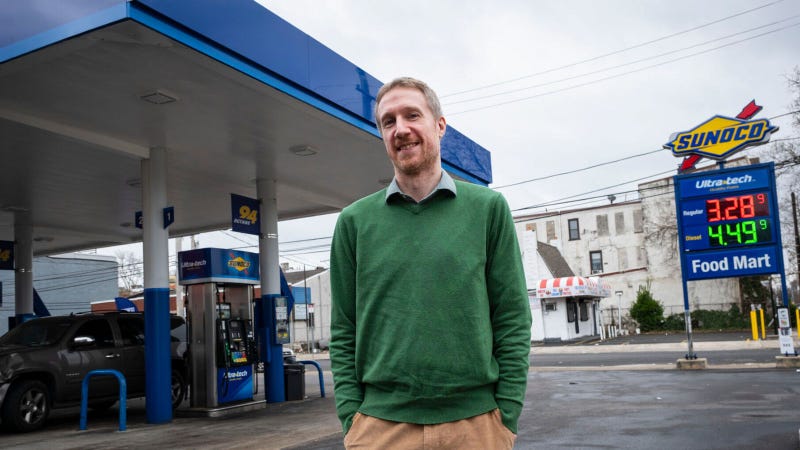
PHILADELPHIA (KYW Newsradio) — You may not give a gasoline fill-up a second thought. But a Temple University alumnus devoted his doctoral dissertation to how stations appeal to drivers’ senses to sell more than gas.
When you pump gasoline, you likely don’t experience the product itself, aside from the occasional whiff. In his doctoral thesis at Temple, Gary Scales examines the concept of "neurocapitalism" — how marketers take advantage of a driver’s senses and fears to influence economic decisions.
“Profits come and go, but where they’re never made is on gasoline. Where they’re made is on the items that alleviate people’s fears,” Scales told KYW Newsradio.
Scales’ dissertation looks at what he calls the “sensory history” of gas stations in the U.S. between 1910 and 1999.
“We don’t use our senses to buy gasoline. It’s only something that we only ever need, we never want. And there was a really curious history around that,” he explained.
Scales, 40, considered how gas stations in the early 1900s targeted drivers’ needs and anxieties. The station’s sign signaled a solution to “range anxiety,” or the fear of running out of gas. Service stations eased the fear of breaking down.
“Tires make an awful lot of money. Brakes, brake pads, etc., make an awful lot of money,” Scales said. “That’s where most of the profit is. It’s never in the gas.”
In the 1980s, convenience stores emerged, inviting customers inside to see, smell, taste, and address the fear of, say, not having coffee. Scales argues it’s the effect of neurocapitalism.
“You start to see coffee, soda, cigarettes, all these things emerging. And so what was once a one-stop shop for the car is a one-stop shop for the person,” he said.
Scales said it’s essential to consider the role of the senses and emotions to understand American capitalism.
“We like to think we can control that sort of stuff, but we’re not as in control as we like to think we are.”
